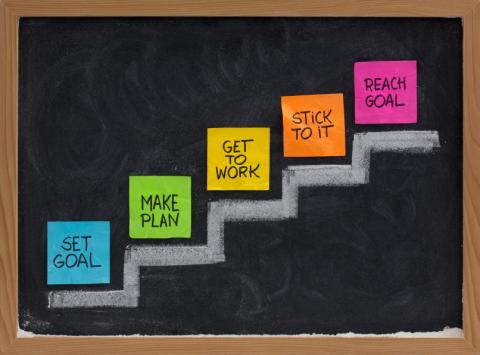Recently, the staff here in the OITE had a dose of our own medicine. Our boss asked us to complete a document about our professional goals and needs. This document reminded many of us about how we tell trainees to “fill out an IDP”. For a group of professionals in the career development field, we were all surprised how hard this document was to complete. Now, we have a whole new appreciation of what our trainees struggle with when we ask them to do the same thing.


For an industry job for scientists, the interview process generally takes six to eight weeks. Starting with an initial phone screen, successful candidates move on to an on-site interview where they usually meet with a number of people from the organization and give a scientific presentation. Next is the final interview, during which a verbal offer may be extended. What is not as well elucidated is how long the overall search process is likely to take.
Post written by Lori M. Conlan, Director of the Postdoc Office and the Career Services Center at the OITE This week I had lunch with the first mentor I had outside of the lab environment. In 2006, I had just left my postdoc to join a non-profit in Manhattan—the New York Academy of Sciences. I knew I could do the job running a career development program for graduate students and postdocs, but I was clueless about how life worked in an office. I started on a Tuesday, and by Friday I was sent off on my first business trip to Miami.
Do you need to find a job in a geographically limited area far from your current location? Maybe your significant other just found a dream job, or maybe you just always wanted to live in Seattle, WA – whatever the reason, a remote and geographically limited job search poses a distinct set of challenges that require some strategizing to overcome. Here are a few thoughts that may help from a person who recently was searching for a job in Dallas, TX, while living in Bethesda, MD. These tips are useful in any job search, but particularly for conducting a remote search.
You found an awesome job posting or graduate program, crafted the perfect curriculum vitae, and created a cover letter capable of convincing the staunchest of holdouts that you are a vital addition to their team. The only problem is you remembered to attach your resume after pressing send on your cover letter e-mail. Forgotten attachments happen to everyone, but the job application process is where you are supposed to distinguish yourself as a better candidate than everyone else. So – now what?
Last week at the NIH, Daniel Goleman delivered a talk about Emotional Intelligence and how it influences leadership. The premise of Emotional Intelligence is that understanding your emotions, the emotions of others, and how the two interact allows us to be more successful and happier.
Emotional Intelligence suggests that to be successful the following traits are important:
You have a new job! (or hope to soon). Here are some tips to make the transition to your new position successful and as easy as possible.
First, remember that transitions are always tough. While you are likely very excited about a new position, the transition can be overwhelming, especially if you are moving to a new location. You are closing out a chapter in your life that has likely lasted between two and five years (or more). You are saying goodbye to friends and colleagues and disrupting an established routine—so some anxiety is totally normal.
Post written by a guest blogger Yewon Cheon, former postdoc in the National Institute of Aging and current Program Coordinator in OITE.
“I love interviewing people!”
Interviews are often essential stepping-stones to the next career stage. You know you are qualified, yet you may worry that you will be too nervous to perform well enough to get the position. If even the thought of the interview makes your palms sweaty and your heart race, believe it or not, that’s normal. According to some estimates, as many as 40 million Americans suffer from situational anxiety.

